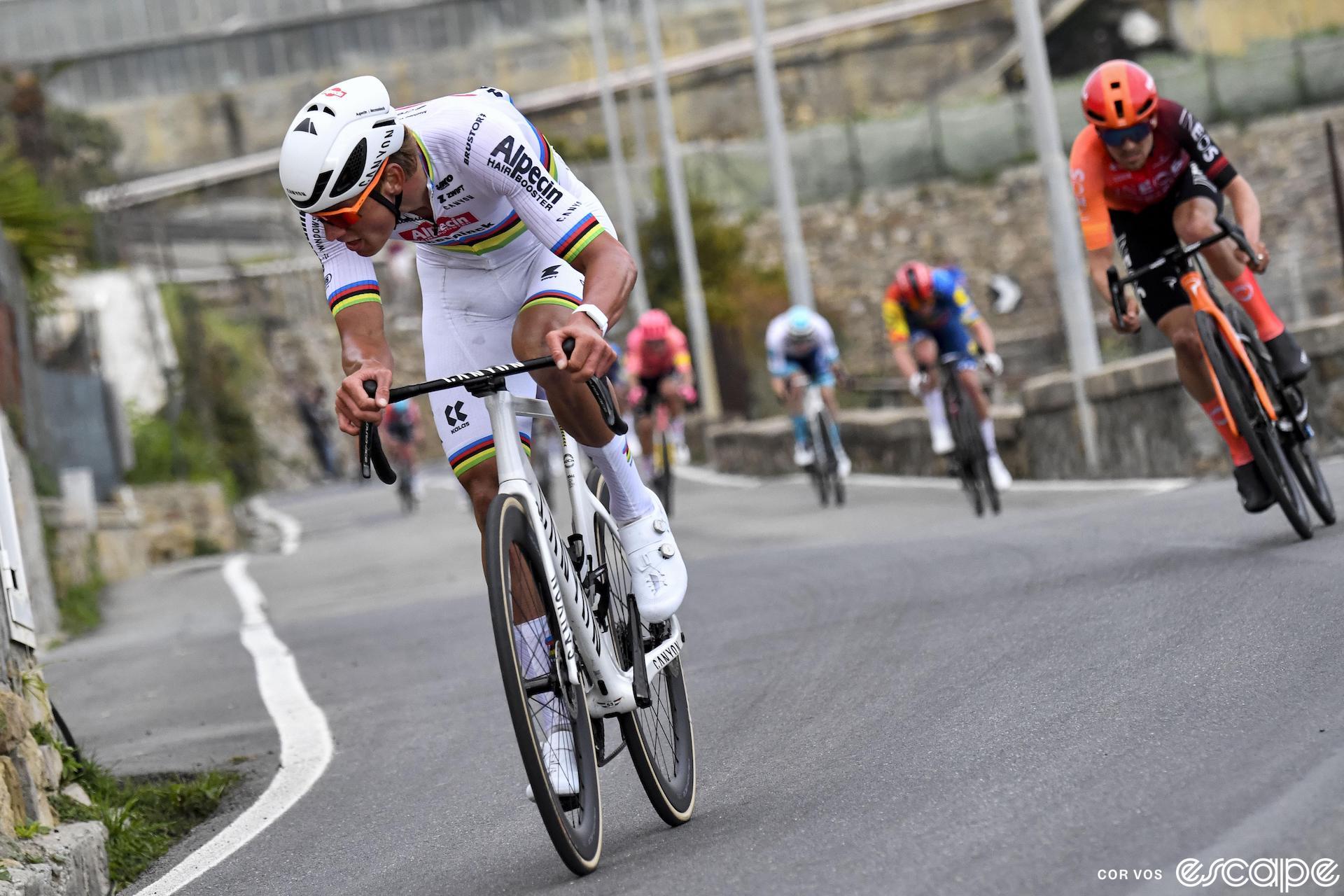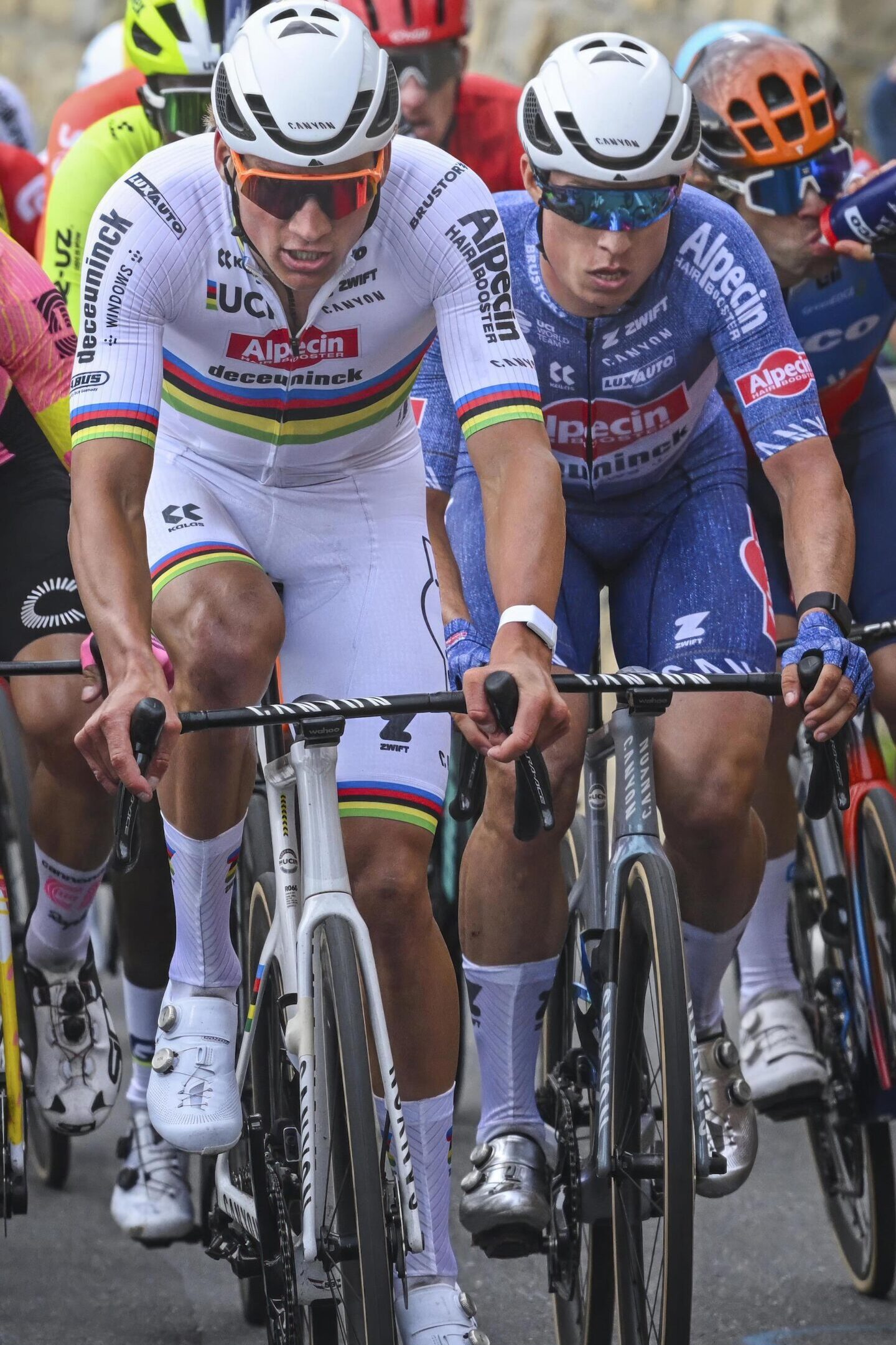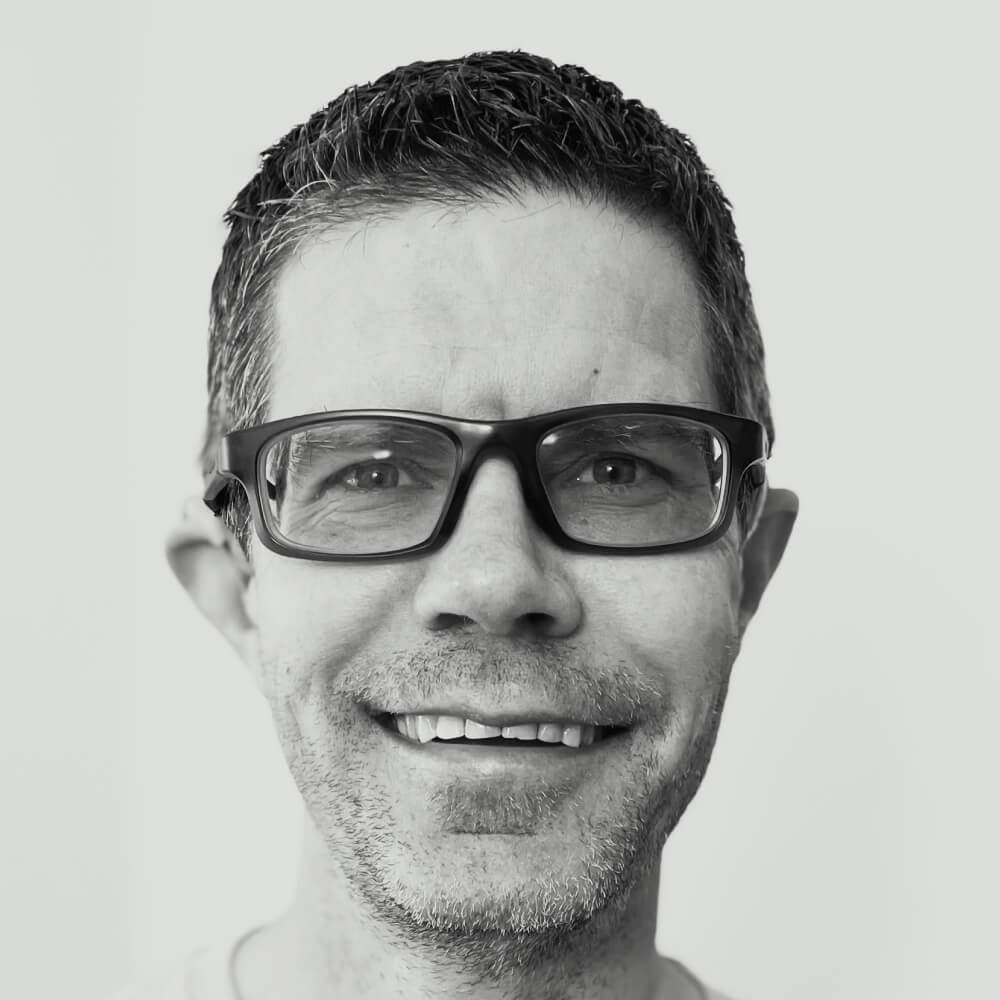Last Saturday, defending Milan-San Remo winner Mathieu van der Poel turned himself inside out to deliver a repeat win for his Alpecin-Deceuninck team. In a twist, it wasn’t the reigning World Champion himself crossing the line first, but his teammate, Jasper Philipsen, who benefited massively from Van der Poel chasing down various late attacks off the Poggio.
According to post-race comments, Philipsen told Van der Poel as late as the Poggio climb that he had good legs. But it’s no small sacrifice for a clearly in-form rider and team leader to willingly hand over his own chance to win a Monument, and no less to a rider who is out of contract and the subject of rumors of a possible return to UAE Team Emirates. Afterward, Van der Poel addressed it obliquely, saying, “I hope Jasper stays. I think he’s in the right place with this team.”
On Monday, we learned one small clue about why Van der Poel may have made that sacrifice when two major announcements hit: a three-year extension of his contract with Alpecin-Deceuninck, through 2028, and a massive 10-year deal with bike sponsor Canyon. Canyon and Alpecin-Deceuninck also extended their agreement. That term was not announced, and Canyon did not immediately respond to a request for clarification on whether its deal with Van der Poel is all cash or involves an equity stake in the bike brand.
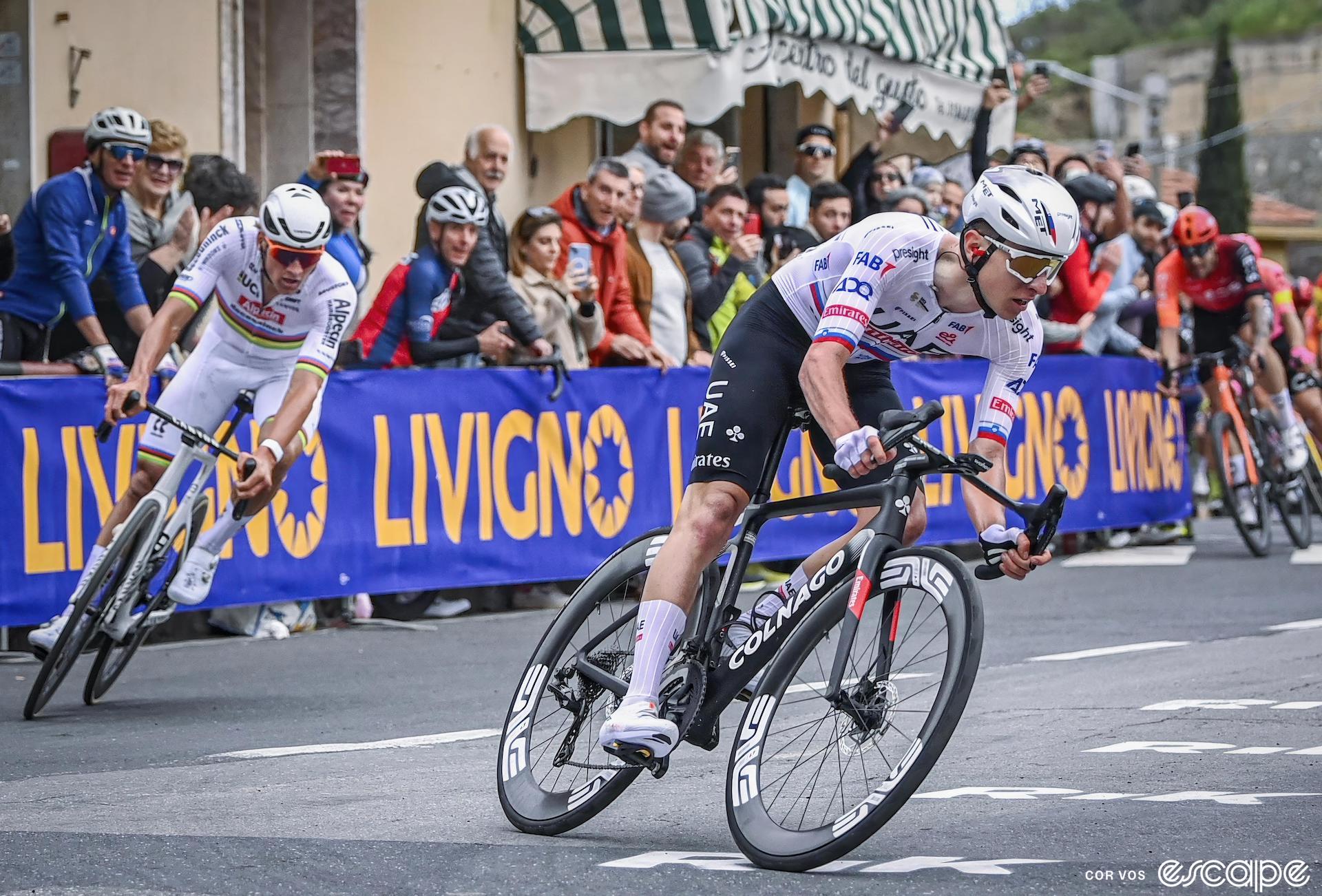
The team extension puts him in the company of SD Worx-Protime’s Lotte Kopecky (herself the reigning World Champion), Visma-Lease a Bike’s Jonas Vingegaard, and UAE’s Juan Ayuso and Jan Christen for the longest deals in the sport. And the Canyon agreement all but ensures that Van der Poel, 29, will end his career on the brand he’s ridden since 2017.
With those deals in place, Alpecin-Deceuninck cements its position as one of the most stable and solid WorldTeams in the sport. While the team is not thought to operate on the budget of superteams like Visma or UAE, the presence of a dependable superstar like Van der Poel, and the long-term solidity of what is undoubtedly a significant partnership between the team and bike sponsor, means that Alpecin is on unquestionably firmer ground than most pro teams, which typically sign riders for 2-3 years and have sponsor agreements of similar terms.
That is a fast rise for what was a second division team as recently as 2022, and the Roodhooft brothers have smartly built the team in close partnership with Van der Poel to become one of the top outfits on the WorldTour.
That raises two interesting points about Van der Poel’s deal: first, superstar riders get no small amount of compensation outside of their team contracts, via personal endorsement deals And after years of calls for salary caps to help level the sport’s playing field, as the UCI quietly announces that it’s actively working on the issue, Van der Poel’s deal points out how difficult a problem that may be to solve.
Second, riders’ endorsement deals can increasingly steer whole teams. Remco Evenepoel’s relationship with Specialized was a major sticking point in the ultimately failed Visma-Soudal merger. Van der Poel’s contract with Canyon is twice as long as his deal with Alpecin-Deceuninck, but as per the language in the press release, he has what appears to be a rider option to continue on a year to year basis. That all but guarantees that Van der Poel has more or less personal direction over Alpecin’s choice of main equipment partner.
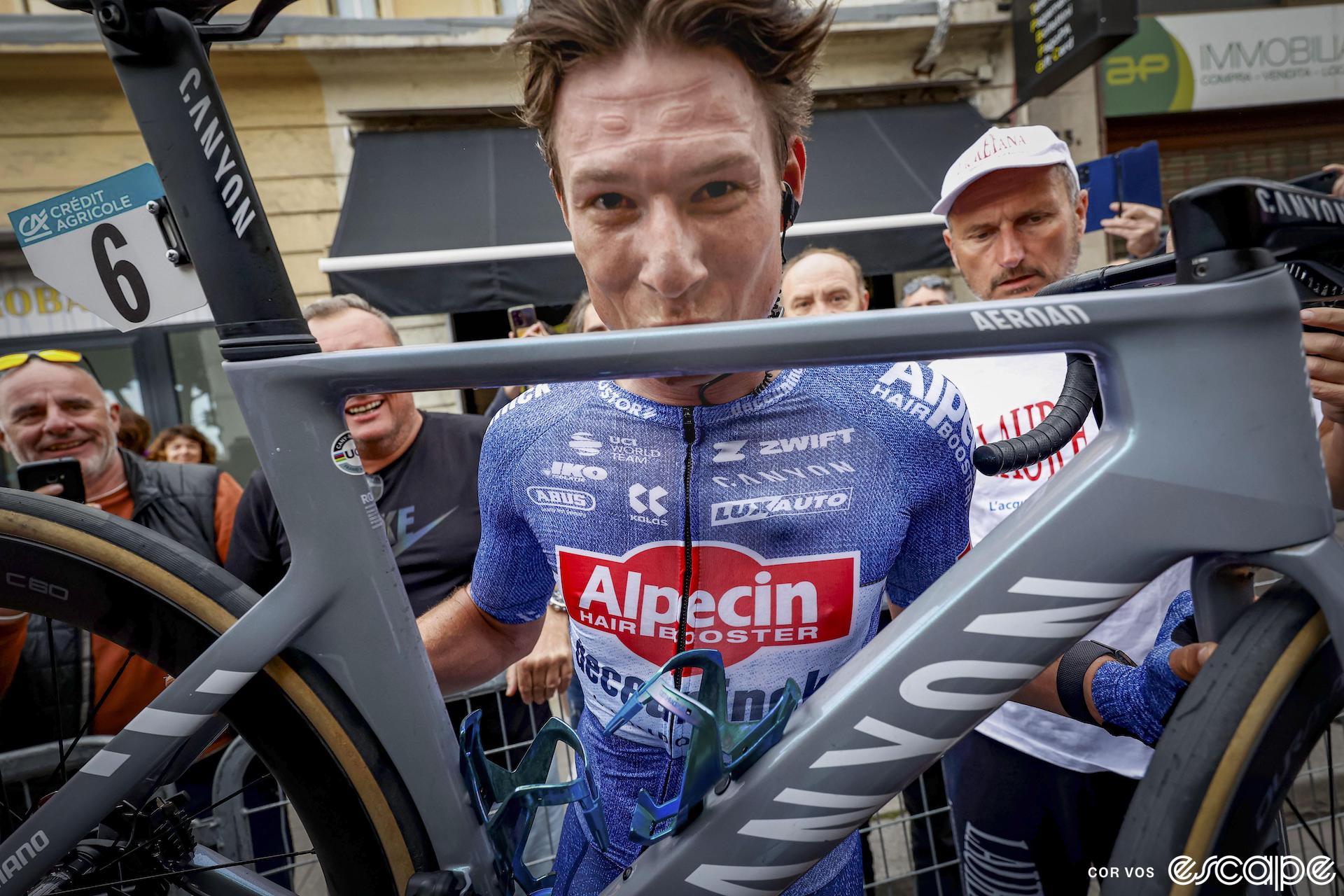
With that kind of role and longevity then, it’s little surprise that Van der Poel would be personally invested in keeping a rider of Philipsen’s caliber. As much as Alpecin is built around Van der Poel’s talent and versatility, Philipsen’s own significant abilities provide welcome depth; just 11 of the team’s 36 wins last year came from riders other than those two.
Van der Poel does best when he’s allowed time and space to build and tend his form. His 2023 season was marked by a hugely successful spring, and then a World Championship built on a role at the Tour de France as mostly a leadout for Philipsen. This year, the cobble Monuments and likely the Olympic road race are his major targets, and having a rider so dependably capable of winning Tour stages takes a lot of pressure off Van der Poel’s shoulders.
With the deals, Van der Poel’s own financial future is undoubtedly secure (it likely was already, but this puts it beyond doubt). The next step is to continue to build the team, and that starts with taking care of the talent it already has.
Did we do a good job with this story?
